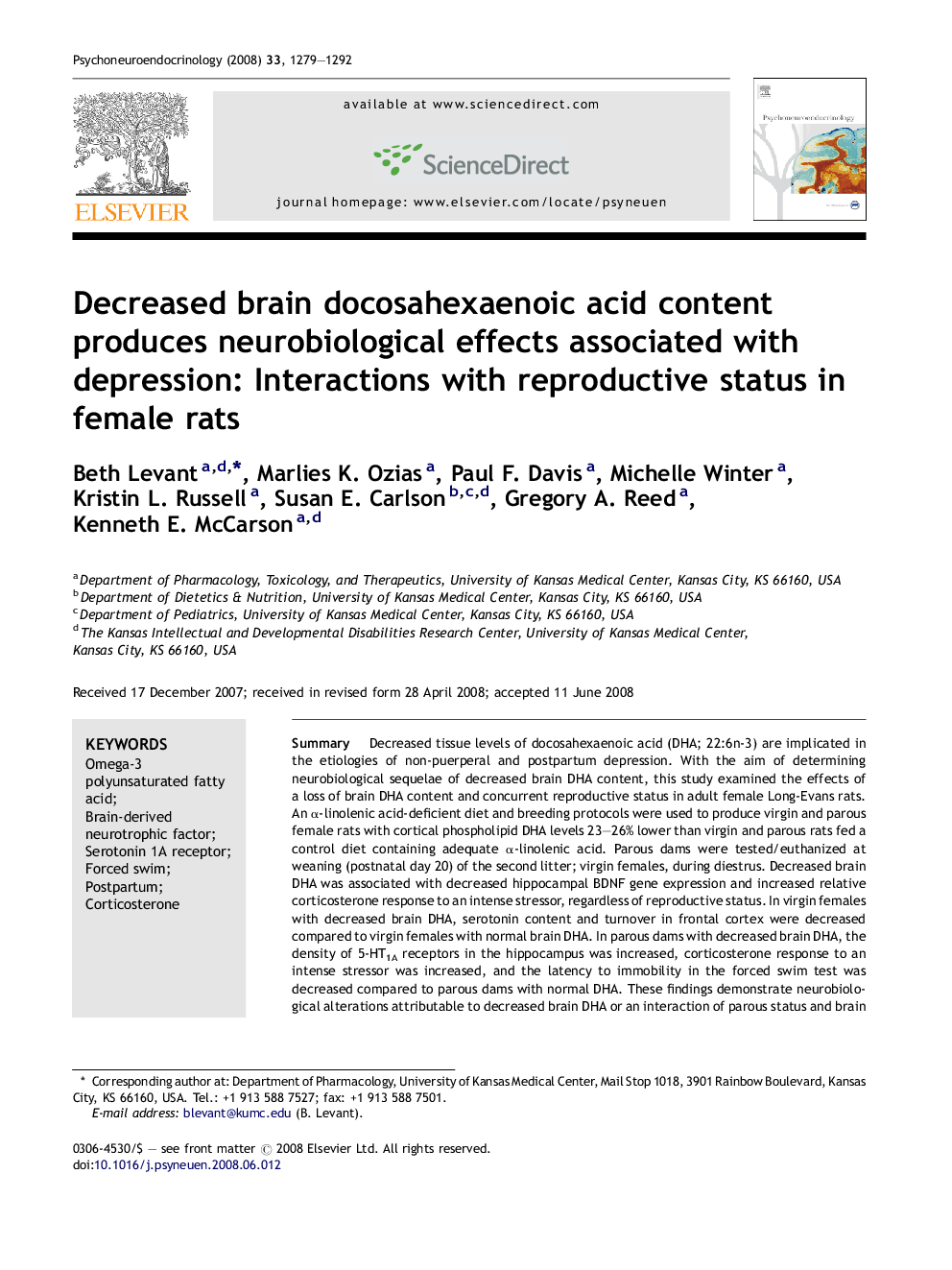| کد مقاله | کد نشریه | سال انتشار | مقاله انگلیسی | نسخه تمام متن |
|---|---|---|---|---|
| 10306018 | 547104 | 2008 | 14 صفحه PDF | دانلود رایگان |
عنوان انگلیسی مقاله ISI
Decreased brain docosahexaenoic acid content produces neurobiological effects associated with depression: Interactions with reproductive status in female rats
دانلود مقاله + سفارش ترجمه
دانلود مقاله ISI انگلیسی
رایگان برای ایرانیان
کلمات کلیدی
موضوعات مرتبط
علوم زیستی و بیوفناوری
بیوشیمی، ژنتیک و زیست شناسی مولکولی
علوم غدد
پیش نمایش صفحه اول مقاله

چکیده انگلیسی
Decreased tissue levels of docosahexaenoic acid (DHA; 22:6n-3) are implicated in the etiologies of non-puerperal and postpartum depression. With the aim of determining neurobiological sequelae of decreased brain DHA content, this study examined the effects of a loss of brain DHA content and concurrent reproductive status in adult female Long-Evans rats. An α-linolenic acid-deficient diet and breeding protocols were used to produce virgin and parous female rats with cortical phospholipid DHA levels 23-26% lower than virgin and parous rats fed a control diet containing adequate α-linolenic acid. Parous dams were tested/euthanized at weaning (postnatal day 20) of the second litter; virgin females, during diestrus. Decreased brain DHA was associated with decreased hippocampal BDNF gene expression and increased relative corticosterone response to an intense stressor, regardless of reproductive status. In virgin females with decreased brain DHA, serotonin content and turnover in frontal cortex were decreased compared to virgin females with normal brain DHA. In parous dams with decreased brain DHA, the density of 5-HT1A receptors in the hippocampus was increased, corticosterone response to an intense stressor was increased, and the latency to immobility in the forced swim test was decreased compared to parous dams with normal DHA. These findings demonstrate neurobiological alterations attributable to decreased brain DHA or an interaction of parous status and brain DHA level. Furthermore, the data are consistent with findings in depressed humans, and thus support a role for DHA as a factor in the etiologies of depressive illnesses, particularly postpartum depression.
ناشر
Database: Elsevier - ScienceDirect (ساینس دایرکت)
Journal: Psychoneuroendocrinology - Volume 33, Issue 9, October 2008, Pages 1279-1292
Journal: Psychoneuroendocrinology - Volume 33, Issue 9, October 2008, Pages 1279-1292
نویسندگان
Beth Levant, Marlies K. Ozias, Paul F. Davis, Michelle Winter, Kristin L. Russell, Susan E. Carlson, Gregory A. Reed, Kenneth E. McCarson,